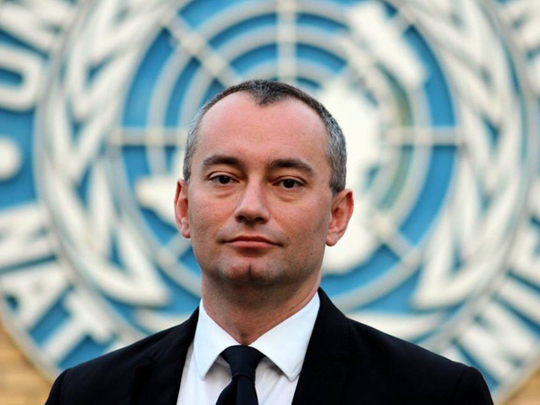
Last Friday, the Quartet, a body consisting of representatives from the EU, US, UN and Russia, whose mandate was to advance Israeli-Palestinian peace, released its long-awaited eight-page report on the impediments to achieving peace.
As always, the Quartet makes a number of now commonplace, nearly boiler plate recommendations to “both sides”. Like the thousands of pages of reports that preceded this one, the Quartet “reiterates that a negotiated two-state outcome is the only way to achieve an enduring peace that meets Israeli security needs and Palestinian aspirations for statehood and sovereignty, ends the occupation that began in 1967, and resolves all permanent status issues”.
For those unacquainted with mealy-mouthed diplomatic speak of a Quartet too fearful to confront Israel, the Quartet is once again demanding that Palestinians and Israelis return to endless negotiations. So terrified is the Quartet of condemning Israel that it no longer sees fit to blame Israel for its continued military rule, preferring instead to hide behind the passive voice — “an occupation that began” — as though Israel’s nearly 50-year brutal military rule just appeared like magic from the sky, without Israel carrying it out, financing or profiting from it.
And herein lies the problem: the Quartet’s failure to recognise that Israel is the cause of the lack of peace and stability for the region in general and Palestinians in particular leads to an absurd demand. That is, that Palestinians waste their time negotiating with their occupier and oppressor rather than the world forcing Israel to comply with international law. This tip-toeing around Israel — fearful that it will alienate Israel or Israelis — has only served to fuel the correct belief that the world sets Israel’s demands above those of Palestinians.
Take, for example, the very wording of the Quartet’s call for peace in which one side’s (Israel’s) “needs” are met and the other side’s (Palestinians’) “aspirations” are addressed. For the Quartet, Israel has “needs” while Palestinians have “aspirations”. Conveniently ignored is fact that, it is Palestinians who are in greater need of security. Unlike Israel, possessing among the most sophisticated weaponry in the Middle East (including a nuclear arsenal), Palestinians are stateless and languishing in refugee camps. We possess no tanks, armoured personnel carriers and no F-16s or drones. Indeed we have no army. And the threat of being ethnically cleansed from our homeland is real as evidenced by Israel’s actions in 1948 and its ongoing policies to rid Palestine of Palestinians.
Three generations of Palestinians have lived under repressive Israeli military rule and denied the basic right to freedom. Israel has detained or imprisoned nearly 30 per cent of all Palestinian men in Palestine, many without charge or trial. It has convicted thousands in kangaroo courts that have over 97 per cent conviction rates. Has the world already forgotten Israel’s repeated bombing campaigns of the besieged Gaza Strip, 80 per cent of whom are refugees and more than 50 per cent under the age of 18? Are these lives lost, these generations destroyed, these children’s long-term trauma at enduring prolonged bombing campaigns not as important as Israel’s security “needs”? And lest we simply chalk up the Quartet’s report to poor wording, let us consider the alternative. Did the world refer to South Africa’s racist apartheid regime as “a system of government that began in 1948”? Did it call upon “both sides” to effect measures and call upon the oppressed black majority of apartheid South Africa to negotiate with the very regime that sought its extermination? The answer is no.
The starting point can no longer be to appease Israel. The world cannot continue to pretend that the occupation exists in the passive voice — for the occupation is not passive and there is a deliberate actor — Israel. This deliberate actor must be punished for its 50 years of denying Palestinians their basic rights. And while the Quartet condemned (as it should) Israel’s colonies, it fails to push for any action that seeks to hold Israel accountable for building those colonies. Israel cannot be allowed to get away with forcing Palestinians to languish in refugee camps in order to meet its “demographic concerns”. Israel’s endless security demands cannot be placed above Palestinians’ right to be free and secure, for as history has aptly demonstrated, Israel has killed more Palestinians in an effort to maintain its military rule and ethnic purity than the number of Israelis killed as a result of Palestinians resisting Israel’s racist policies. The Quartet can continue to appease Israel, and undoubtedly will do so, but will soon face the realisation that their carefully crafted formulas only serve to prolong the very crisis that they claim to want to end.
Diana Buttu is a Ramallah-based analyst, former adviser to Palestine Liberation Organisation chairman Mahmoud Abbas and Palestinian negotiators and policy adviser to Al Shabaka: The Palestinian Policy Network.









